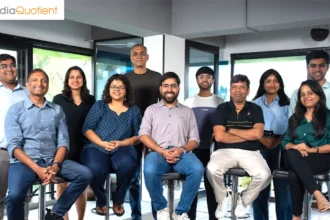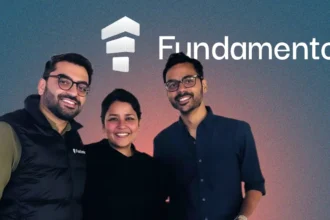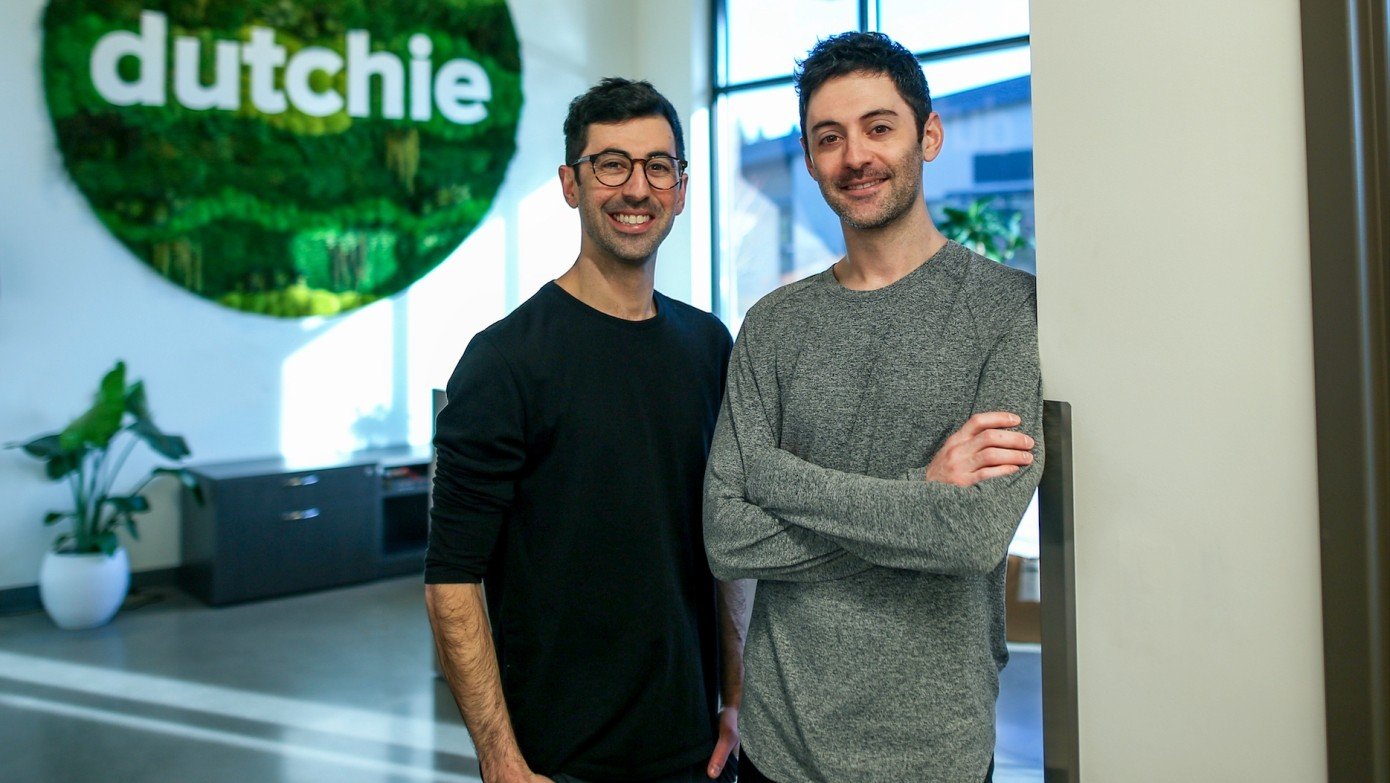What we offer for Rs 10,000 or Rs 12,000 here would typically cost around $500 abroad… and a fraction of what competition charges in India.
Genomic information has the potential to turn around the future of healthcare and diagnostics. Genetic knowledge can help the way medicine is practiced, and can empower each individual to make better decisions about his health.
In a conversation with Dominic Rebello and RN Bhaskar, (both from the Free Press Journal), Subodh Gupta, a seasoned healthcare professional with close to three decades of industry experience and the Chief Executive Officer at Lord’s Mark Microbiotech, elucidates the importance of individuals understanding their genetic structure and being aware of potential disease predispositions.
What does Lord’s Mark Microbiotech do?
What we aim to accomplish is the assessment of an individual’s risk, particularly in the case of chronic conditions such as cardiovascular diseases, various forms of cancer, and other health-related issues, before the onset of these ailments. This can be achieved through a genetic analysis of a healthy individual, enabling us to determine if they have a predisposition to develop cardiovascular diseases and 17 types of cancer, which are identifiable through genetic biomarkers. This is the essence of our approach – providing people with insights into their potential health risks before they are unfortunate enough to experience the diseases themselves.
So if I want to get myself tested, do you take my blood, urine or stool sample? How do you go about it?
The only precaution you need to observe is to abstain from eating or drinking anything for at least 30 minutes prior to taking the test to prevent any potential food contamination.
Once the swab test is taken place, and sent to your laboratory, your work begins…
Indeed, it’s a straightforward process. You just need to place the collected sample into the provided tube, which is included in the kit. After that, we arrange for a pickup from your location, wherever you may be, and transport the sample to a laboratory for further processing.
The beauty of our approach is that it doesn’t necessitate the involvement of a phlebotomist or a laboratory setup. Any individual can perform this test from the comfort of his home.
So, at the age of six I can have an idea of what kinds of diseases my body is predisposed to 40-50 years hence…
Our tests can help determine the fitness of kids, including which sports and exercises are best suited for each child. These tests provide comprehensive guidance for parents in optimizing their child’s physical and mental well-being.
So right from childhood, you know what is good for them?
Indeed, our tests offer a scientific method for understanding your child’s predispositions and characteristics. Instead of relying on trial and error, you can gain valuable insights into your child’s interests, attention span, and potential talents. This information can help you make informed decisions about their education and extracurricular activities, ensuring a more personalized and effective approach to their development.
Is that the reason why Singapore is making these tests mandatory?
Yes, it is an interesting and forward-thinking approach. Singapore has mandated genetic analysis for children born within a specific timeframe, which can provide critical information about the future chronic disease burden for their population. This proactive step not only benefits individuals by allowing them to be aware of potential health risks but also enables the healthcare system to prepare adequately for the future, ensuring that the necessary resources and strategies are in place to address the health needs of the population as it grows.
How expensive are these tests?
When you consider the potential cost of treating cardiovascular problems, the cost of preventive measures such as your CardioGenguard blood tests, is just Rs 10,000. That is a fraction of the price tags prevailing in the market. And a fraction of the cost of treating the ailment, when it does occur. Being aware of your cardiac risk well in advance allows individuals to take precautionary measures, significantly reducing the likelihood of ending up in a situation that requires expensive treatments like angioplasty, which can cost several lakhs. Preventive measures not only save money but also, more importantly, safeguard one’s health and well-being.
This Rs 10,000, is it covered by insurance?
As of now, these genetic tests may not be covered by insurance, but it’s possible that in the future, insurance policies may evolve to include coverage for such preventive measures. As the understanding of genetic testing and its role in healthcare continues to expand, insurance providers may recognize the value of these tests in preventing costly medical interventions and promoting overall health. It is a positive step toward making these tests more accessible to a wider population.
So you’re talking to the Insurance Regulatory and Development Authority of India (IRDAI)?
Yes, we are talking to IRDAI and trying to convince them to include these tests as part of the insurance scheme.
What has the response been?
Yes, they are interested, we are submitting them papers and the studies and as the science and understanding of genetics continue to advance, demonstrating the benefits of genetic testing for preventive healthcare can pave the way for its acceptance and inclusion in insurance coverage. I’m sure it should get adopted by IRDAI.
This means once IRDAI accepts it, then you can persuade the health authorities in India to take it to the national level, the way Singapore has done it?
Indeed, our health authorities are increasingly well-informed and receptive to emerging technologies and innovations. I am confident that the emphasis on Preventive Medicine, which holds great significance for the government, will lead to the adoption of preventive genetic testing as a substantial tool. This will enable us to proactively assess the disease burden of the population well before its manifestation, marking a significant step forward in healthcare.
How have the doctors received it because ultimately a test is recommended by the doctor. What’s the doctor’s response?
The majority of doctors have been highly responsive and welcoming of this kind of test. In instances where we have conducted the tests and provided patient counseling, doctors have expressed their satisfaction and eagerness to recommend it to a broader patient base. For doctors, it’s crucial that their patients maintain good health and receive sound advice. I am confident that as awareness of preventive genetic testing continues to grow, more and more doctors will encourage their patients to undergo these tests, particularly when one family member has a cardiovascular condition. It’s important for other siblings to get tested and understand their cardiac risk as well.
Are doctors aware of this technology?
While not all doctors may be aware of this technology, we have an active team of marketing professionals who engage with healthcare professionals. During these interactions, we provide them with all the necessary information and insights into this technology. The medical community has responded positively to our efforts, and we are making strides in increasing awareness and understanding of this innovative approach.
How equipped is a doctor to understand this? Do the Medical Colleges teach this course in genetics?
While the study of genetics is not included in the current MBBS curriculum, many doctors are familiar with this field of study. Genetics has gained significant prominence and is a topic of discussion across various medical circles. Consequently, more and more doctors are expressing interest in genetics and are eager to learn and understand it better. There is a notably higher level of awareness within the medical community today compared to what it was, say, a decade ago.
So besides the IRDAI, you’ll also have to talk to the medical education authorities to include this as part of the curriculum.
Absolutely. I understand the importance of the medical fraternity in driving any healthcare change. For a shift towards preventive genetic testing to be successful, it requires the acknowledgment and support of the medical community. We are actively engaging with them, providing all the necessary data and information to address their needs. Doctors typically possess a high level of scientific acumen and rely on data and evidence-based practices. We are ensuring that we equip doctors with the data and experiences necessary to make informed decisions and recommendations regarding preventive genetic testing.
How expensive is it for you to set up this facility?
I wouldn’t provide precise figures, but it’s important to emphasise that it is not just about financial resources. The essential factor is knowledge. While anyone with the means can purchase the necessary equipment and set up the infrastructure, having the knowledge base is paramount. This requires an expert team, consisting of highly skilled scientists and genetic counselors. It is essential to complete the entire loop because simply conducting the testing and handing a report to the patient is insufficient. The patient may not know how to interpret or act upon the results. Therefore, it is crucial to provide the complete loop, which includes offering guidance and solutions to the individual.
How do your price tags compare with overseas firms?
What we offer for Rs 10,000 or Rs 12,000 here would typically cost around $500 abroad.
This means that you could be attracting a lot of patients from overseas, especially in the Indian diaspora.
Certainly, awareness of preventive testing is much higher in Western countries compared to our current level of awareness. In those regions, it has been widely discussed and is readily available, leading to a greater understanding and adoption among the population.
The advantage of such testing is that it typically needs to be done only once in a lifetime, as one’s genetic structure remains unchanged throughout any person’s life. This means that the genetic risk of a particular condition remains constant, making it a valuable and long-term investment in one’s health.
Today if a person has the genetic pattern of X and if he takes care of that it does not exacerbate, does the next generation get that genetic pattern changed?
Indeed, there are different tests available to assess cardiovascular risk. It is a fact that Indians carry a significant burden of cardiovascular diseases, accounting for 60% of global cases. This is primarily due to a genetic predisposition among the Indian population. Given this, it makes a lot of sense for us to undergo preventive testing and proactively identify these conditions.
You may have come across cases where seemingly healthy individuals, even young people who are fitness enthusiasts and marathon runners, have experienced sudden cardiac arrests. This is a tragic and unfortunate reality, as outwardly healthy individuals can still be at risk due to genetic predispositions. Therefore, it is crucial to undergo these tests at a young age rather than waiting until one is in their 50s when a problem may have already developed. Early knowledge of cardiovascular risk can be life-saving.
So it is good to get it done on a child when he is young So that even the parents know what should be avoided and what should they encourage?
Indeed, if you discover at a young age, say 18 years old, that you have a risk of developing cardiovascular problems, you can proactively adopt healthy habits from an early stage. By doing so, you can potentially prevent or significantly delay the onset of these issues. The Polygenic risk score takes into account a combination of your genetic predisposition and lifestyle habits, making it possible to take preventive actions to protect your heart health.
How do you see the growth of your business?
I anticipate exponential growth as awareness about this spreads, and we are actively promoting this through various channels. We are utilising media, social media, and our website to disseminate information. Our marketing team plays a significant role by engaging with and educating people about the benefits of preventive genetic testing.
I prefer not to measure the growth in terms of percentage increases but rather by its exponential growth, which signifies a multiple-fold increase over time.
So you expect the business to grow multiple times
The potential for growth is immense, as all 140 crore of my fellow Indians should consider taking this preventive test. We can grow exponentially from here as the awareness spreads.
How big is the industry at the moment?
The industry is currently close to Rs 1,000 crore, mainly driven by clinical testing. Clinical testing is typically performed when a person is already diagnosed with a particular condition, such as a type of cancer. In these cases, the treating physician aims to identify which genes have mutated to plan the appropriate treatment, whether it’s chemotherapy, radiotherapy, or something else. This clinical testing is often focused on definitive diagnosis.
However, our goal is to conduct preventive testing, where we can predict an individual’s risk of developing a certain condition. This approach aims to help people avoid getting into the disease state in the first place. For instance, we can predict the risk for over 70 types of cancers, particularly those with a genetic component. With this advance knowledge, individuals can take action, such as adopting regular screening or changing their lifestyle habits.
Consider colorectal cancer, for instance. By maintaining good gut health, the likelihood of developing colorectal cancer significantly decreases. On the other hand, certain cancers, like prostate cancer, can be challenging to treat. If a person is aware of his high-risk levels, he can monitor his Prostate-Specific Antigen (PSA) levels at regular intervals. The message we convey is that there might be a potential problem, so it’s essential to get yourself analyzed or checked before the disease actually manifests, as there may be no turning back once it does.
So effectively, you are at a nascent stage in this Rs 1,000 crore industry?
Yes, we are at a nascent stage, but we believe the sky is the limit in this.
What is your accuracy rate?
I can say with a lot of conviction that our accuracy is 99.6%. We never provide a report or diagnosis for any condition unless we are entirely certain about it.
So you would like to encourage every kid to go in for this test…
Certainly, people should not be afraid. I understand that there are concerns about potential anxiety when it comes to knowing one’s risk, especially for conditions like cardiovascular disease. However, it’s important to realise that the anxiety associated with the potential pain of a heart attack in the middle of the night far outweighs the anxiety of knowing your risk and taking proactive measures today.















